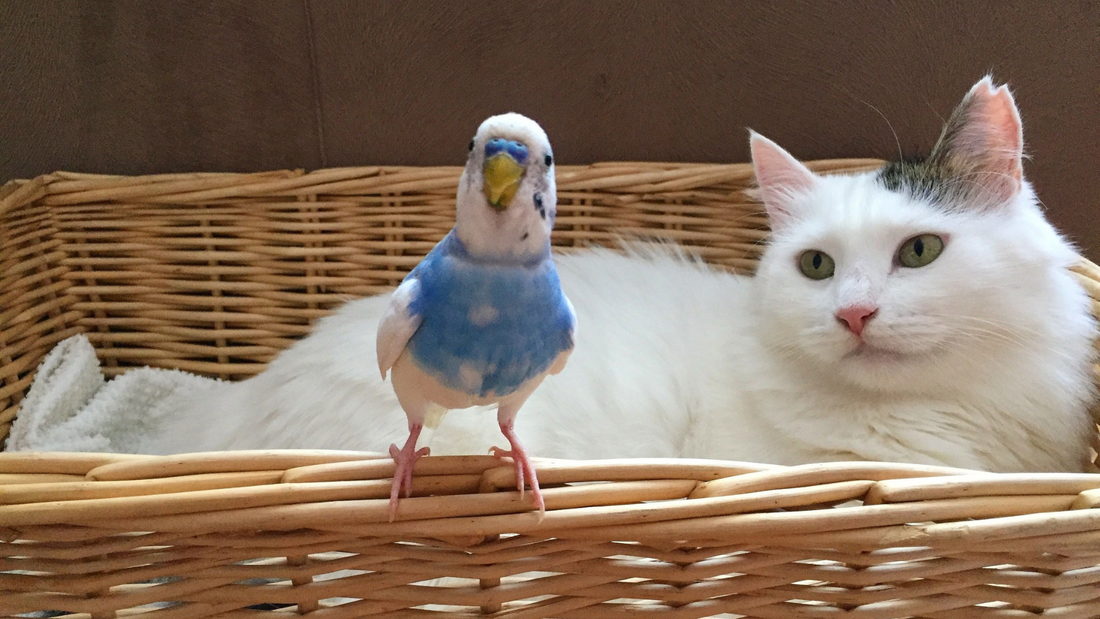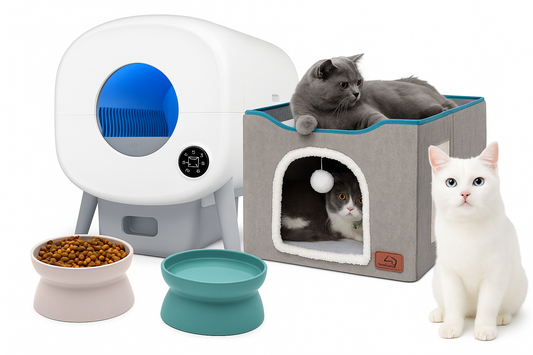
Why Do Cats Chatter at Birds? Science Has a Theory
Anyone with a cat and a window knows the sound: that odd, staccato chatter your feline friend makes when a bird flutters by. It's like a cross between a squeak and a teeth-click, often paired with an intense, unblinking stare. Sometimes their tail twitches like it’s powered by electricity, and their whole body stiffens, as if they're seconds away from pouncing—except, of course, there's a pane of glass in the way. It’s a familiar scene for cat owners: your fluffy hunter, laser-focused, making sounds that seem completely out of place in your quiet living room. It's funny, a little eerie, and undeniably intriguing.
We laugh, we take videos, we post them online. But every time our cats go into that hyper-focused chattering mode, we’re witnessing something ancient. That bizarre little behavior isn’t just a quirk—it’s a deep-rooted instinct that goes way back to their wild ancestors. So what’s really going on when your cat chatters at birds? Is it frustration, mimicry, instinct, or all of the above? Let’s break it down.
The Science Behind the Sound

Cat chattering is more than just a quirky noise. Experts and veterinarians have spent time studying this peculiar behavior to understand its roots, and their findings point to something more primal than it may seem at first glance. According to animal behaviorists, it ties directly to a cat's hunting instincts. When your cat spots a bird through the window but can’t pounce, it triggers a mix of excitement, frustration, and primal predatory drive. That chattering? It could be your cat’s way of preparing for the kill. Think of it like shadowboxing—except instead of jabs, it’s jaw snaps.
And this isn’t just anecdotal. Studies of feline behavior have shown that when a cat enters what’s known as the “prey sequence”—that series of actions involving stalking, chasing, pouncing, and biting—the body starts gearing up even if it can’t actually complete the hunt. The chattering fits right in as a kind of involuntary physical rehearsal. Even if your cat hasn’t been outside in years, its brain is still wired for the wild. According to CatHealth.com, this chattering behavior may be tied to the rapid kill bite used by wild and domestic cats alike to quickly subdue prey—reducing the chance of injury during a hunt (CatHealth).
Mimicry or Muscle Memory?
One of the more intriguing theories is that cats may be mimicking the calls of birds or rodents. Some wild felines, like the margay in South America, have been observed using vocal mimicry to lure prey closer. When researchers studied margays imitating baby tamarin calls, they realized that these predators were using sound as bait. Could your tabby be doing something similar?
It’s possible. Some animal behaviorists argue that domestic cats may be echoing the chirps and tweets of birds they’ve heard before. It’s not perfect mimicry—but it might be just close enough to trick a curious bird into hesitating.
That said, the mimicry idea is still debated. Many scientists believe cat chattering is more about muscle memory. The rapid jaw movement closely resembles the bite cats use to sever the spinal cord of small prey. It’s a precision move that takes coordination—and practice. So when your cat chatters, it could be mentally running through the motions of delivering a fatal bite.
A Window to Feline Frustration

Of course, the simplest explanation is that your cat is just really annoyed. Imagine seeing something you desperately want but can’t reach. That’s what it’s like for a cat staring at a fluttering bird just inches beyond the glass.
Frustration can cause a build-up of energy, and chattering may be a cat’s way of letting off steam. Think of it as a feline version of tapping your foot when you're impatient—or muttering under your breath when you're annoyed.
This also helps explain why chattering often happens in short, intense bursts. Your cat sees the bird, locks on, chatters for a few seconds, and then either gives up or goes back to stalking. It’s not about making noise for noise’s sake. It’s a momentary emotional and instinctual release.
Not Just Birds
While most often triggered by birds, cat chattering isn’t exclusive to them. Some cats chatter at squirrels, bugs, or even moving toys. What matters is the movement. Anything that triggers the predator-prey sequence in your cat’s brain can prompt chattering.
There’s a theory that the more erratic or fluttery the movement, the more likely it is to set off a chattering response. Birds—especially smaller ones—tend to move unpredictably, which can really wind a cat up. A butterfly might do the trick too. Even a laser pointer, used in short bursts to mimic that prey motion, can provoke chatter.
Some owners even report their cats chattering at the TV, especially if they’re watching nature documentaries. It’s a testament to how deeply ingrained those instincts are—your cat doesn’t need real prey, just the illusion of it.
What Cat Chattering Really Means

So, why do cats make weird noises at birds? It’s their inner wildcat trying to break free. Cat chattering is a fascinating blend of biology, behavior, and instinct. It reminds us that no matter how cozy our house cats are, there’s still a fierce little hunter lurking behind those whiskers.
This behavior is completely normal. In fact, it’s a good sign that your cat is mentally stimulated by its environment. Indoor cats benefit enormously from these mental workouts. Watching birds through the window becomes a kind of enrichment—cat TV, if you will.
It also gives us, the humans, a fun and bizarre glimpse into the mind of our pets. That little jaw twitch? It’s millennia of evolution in action.
How to Encourage Healthy Stimulation
If your cat spends a lot of time chattering at the window, it might be time to give them more interactive experiences. In fact, we explored some of these ideas in our blog on creating a cat-friendly home without sacrificing style—it's packed with clever ways to enrich your cat’s environment while keeping your space looking great:
- Window perches: A comfy spot by the window can turn bird-watching into a daily ritual.
- Bird feeders: Install one outside your window (safely out of reach!) and let the birds come to you. It’s like Netflix for your cat.
- Interactive toys: Toys that simulate prey movements can give your cat an outlet for that predator energy.
- Puzzle feeders: These combine food with a hunting challenge, letting your cat use its brain and instincts.
Fun Fact: Some Cats "Chirp" Instead of Chatter
Not all cats sound the same when they're stalking. Some make chirping sounds—short, high-pitched trills—while others combine meows with clicks. These noises vary from cat to cat and may depend on breed, age, and personality.
Oriental breeds, like Siamese or Burmese cats, tend to be more vocal and expressive. They might combine chattering with yowling or trilling. Meanwhile, quieter cats might just do the jaw movement with barely any sound. It’s all part of their unique communication style.
Why Understanding Cat Behavior Matters
Understanding behaviors like chattering helps us connect with our pets on a deeper level. In fact, we covered many of these subtle yet powerful signals in our guide to understanding cat body language—from twitchy tails to ear flicks. It reminds us that cats aren’t just cute couch ornaments—they’re complex, instinct-driven animals with ancient behaviors built in.
Behavioral signs like this also help owners notice when something’s off. If a normally chatty cat suddenly goes silent during bird-watching sessions, it might be worth checking their vision, mood, or general health. Cats are notoriously subtle when they’re unwell, so even small changes in behavior can be clues.
In Summary
Cat chattering is more than just an internet-worthy quirk. It’s a multi-layered behavior that taps into a cat’s evolutionary history, emotional state, and sensory perception. Whether your cat is practicing a kill bite, mimicking a birdcall, or just super annoyed it can’t go outside, it’s all part of the fascinating mystery that is feline behavior.
So next time you hear your kitty making those odd little noises at the window, don’t worry. It’s not possessed—it’s just being a cat. A highly skilled, deeply instinctual, wonderfully weird cat.
Got a funny video of your cat chattering like a fuzzy predator? Share it with us @CapnipCo and let’s celebrate those mini lion vibes.



